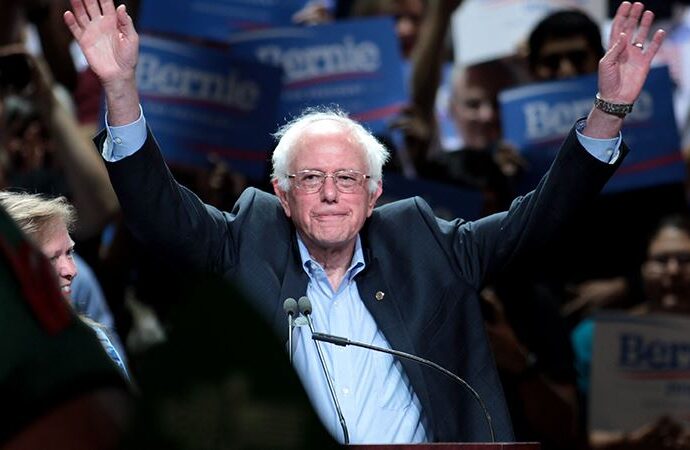Bernie is finally out.
In the midst of the COVID-19 crisis, it was sometimes easy to forget that Bernie Sanders was still in, or that there was a Democratic Party primary race in the works at all.
Following his withdrawal from the race earlier Wednesday, Bernie Sanders fans took to Twitter, using the hashtag #NotMeUs to express their disappointment, anger, or loyal support for the campaign that once was. That hashtag was Sanders’ campaign slogan and signaled “we’re all in this together.”
As I looked at this trending hashtag, it struck me that this was the reason for Bernie’s popularity. In an age of dissent, chaos, and loss of family, church, and community, people crave belonging. They want a group of people with whom they can work toward a common goal, for the bettering of the community as a whole.
Whittaker Chambers put his finger on this desire when he testified in the Alger Hiss case. Chambers, a former Communist spy turned Time magazine editor, came forward in 1948 to warn of the infiltration of the Communist party into key positions of American government.
Understandably, many had a difficult time wrapping their minds around why any American citizen would betray his country and work with a party whose ideology was directly opposed to principles upon which America was built. Chambers was asked this question in the first Hiss trial. His answer is revealing:
“The making of a good living does not necessarily blind a man to a critical period which he is passing through. Such people, in fact, may feel a special insecurity and anxiety. They seek a moral solution in a world of moral confusion. Marxism, Leninism offers an oversimplified explanation of the causes and a program for action. The very vigor of the project particularly appeals to the more or less sheltered middle-class intellectuals, who feel that there the whole context of their lives has kept them away from the world of reality. I do not know whether I make this very clear, but I am trying to get at it. They feel a very natural concern, one might almost say a Christian concern, for underprivileged people. They feel a great intellectual concern at least, for recurring economic crises, the problem of war, which in our lifetime has assumed an atrocious proportion, and which always weights (weighs) on them. What shall I do? At that crossroads the evil thing, communism, lies in wait for (them with) a simple answer.”
We all know that Marxism and Leninism aren’t the exact thing that Sanders was selling, but let’s be honest: the principle is the same. In this nation people desire to work for a common goal and overcome evil with good. But because we’ve abandoned the traditional avenues for these things, namely, church, family, and local neighborhoods, many are searching for a substitute. When a political figure or ideology comes along promising a cheap imitation, we bite, never considering the possible long-term consequences.
Sanders is out, but a candidate with similar ideas and aspirations will likely pick up his torch in the near future. For that matter, all of us could be slipping into a similar mentality as we seek to band together to fight our current crisis, willingly resigning any liberty we’re asked to out of fear or duty.
We are in a crisis together. But let’s not allow that crisis to cause us to choose whatever simple, “evil thing” we meet when we come to the crossroads.
—
[Image Credit: Gage Skidmore, CC BY-SA 3.0]
Image Credit: [Image Credit: Gage Skidmore, CC BY-SA 3.0]
















Leave a Comment
Your email address will not be published. Required fields are marked with *